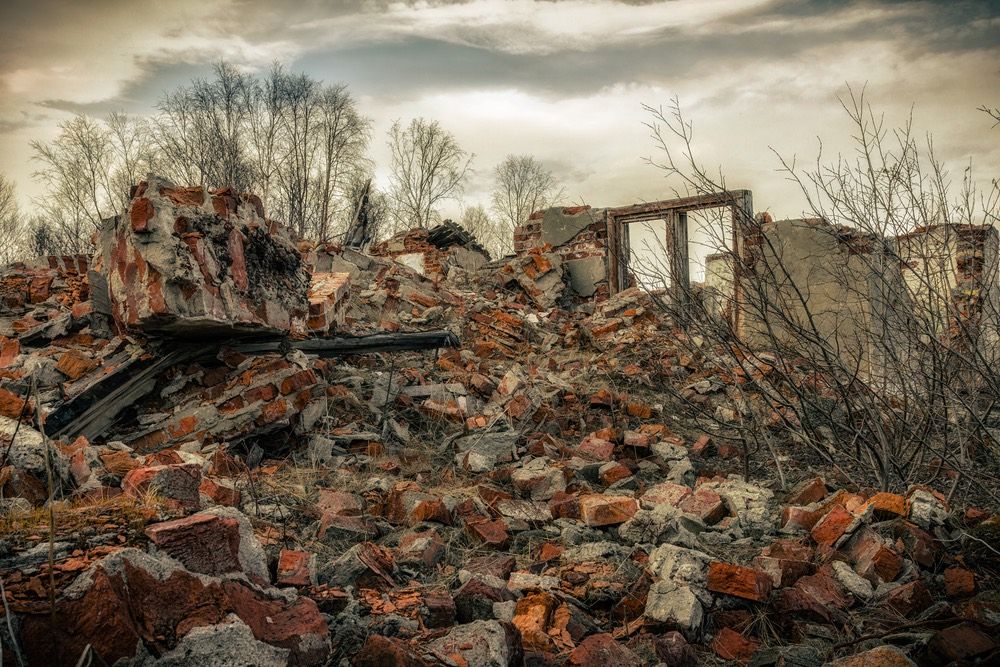What If: Dystopian Fiction, Water Rights and the Future

Author Camille Griep's new novel, "New Charity Blues" (47North, 2016) explores the enduring question of water rights through a post-apocalyptic lens. Camille Griep contributed this article to Live Science's Expert Voices: Op-Ed & Insights.
Not a week went by last year that well-meaning friends didn't ask about the concept for my latest novel, "New Charity Blues." I could almost hear their eyes rolling back in their heads when I responded. "Dystopia? Hasn't that been done to death?"
Authors can use any framing device they fancy to look at the future, so why are dystopias so popular of late? From "The Hunger Games" to "Station Eleven," authors frequently examine the future through a dystopian lens that allows them to cut down the noise of the wider world, focusing on a microcosm of problems that are, on their own, typically too large to conceptualize clearly.
A longstanding devotee of chaos narratives, I've devoured accounts of mountaineering calamities, stories of airplane flights gone wrong and endless tales of the lost, the hopeless, the done-for. And I'm far from the only person wondering what the future will look like when there are relatively few of us left: The question of what will become of us after the apocalypse comes has seized the imaginations of writers throughout time.
Interviewed by ThinkProgress.org in 2012 after the release of his brilliant novel, "The Water Knife," Paolo Bacigalupi explained the inspiration for his story of an apocalyptic water war between Las Vegas and Phoenix. He said of traveling in Texas, "It occurred to me at that moment that I wasn't actually standing in the middle of a drought, I was time traveling. I had just leapt into the future."
Growing up in the eastern hills of Montana, my formative years were ensconced in drought: the threat of fire, the dust beneath my mare's hooves, the prohibition to light even one measly firecracker. My friends in town had water aplenty. But not us. Every two weeks, a water tanker trundled up the big hill, rain or shine, to fill two cisterns. (Finishing the entirety of "Bohemian Rhapsody"in the shower was never in the cards for me.) City girls never had to run a hose from the outside cistern to the inside one, so that the water tasted flat and earthen.
In keeping with the scarcity of water in my own past I used my newest novel to explore the Trojan War alongside one of the oldest conflicts in the world: water rights.
Sign up for the Live Science daily newsletter now
Get the world’s most fascinating discoveries delivered straight to your inbox.
"New Charity Blues" is a story about a quiet conflict, a slow, cancerous boot on the throat of two communities who have already withstood devastating plague. On one side, a long-suffering desert town becomes a self-sufficient bastion, hoarding shared water in a new reservoir and stopping at nothing to protect its newfound success. On the other, a city fails in its quest to rebuild without basic hydroelectric infrastructure. Here, the water itself is our Helen of Troy — the fought-over target essential to each side's survival. A post-apocalyptic apocalypse in miniature.
The novel strips down the complexity of the real-world problem. The western United States has long operated under "the doctrine of prior appropriation," meaning water rights belong to the first person to claim them, regardless of their location up or down the stream.
In "New Charity Blues," whatever agreements had been struck between the City and New Charity are voided when the town begins to irrigate its own sorry cropland, turning a wasteland verdant. This mirrors the west's current agriculture woes, as the "New Yorker" detailed last year. In that article, David Owen described how agriculture accounts for 80 percent of Colorado River consumption, meaning that city cutbacks have much less impact than agricultural conservation efforts.
Not that the problem is so black and white: Efforts to make agricultural water use more efficient, including reuse of wastewater, can, prevent excess water from returning to the ground, leaving downstream environments oversalinated or dry, Owen noted.
Similarly, at the terminus of the fictional Basalt River, the City of my novel watches its hydroelectric plant sit idle due to lack of water. In California, that near future scenario is happening now, though the state has had some success replacing its own drought-stricken hydroelectric power with alternate solutions.
Water issues are global in scale. The drought-stricken Middle East has begun importing water-intensive crops like hay, alfalfa and other grasses in order to lower their own usage of agricultural water resources. Areas with untapped resources of water, like Sitka, Alaska and its billions of gallons of unused reserves, have started to export excess supply to India and the Middle East, potentially improving economies on both sides of the ocean.
In my story, there's enough water if the sacrifice is shared between the two communities. Though global solutions in the real world are not so simple, fiction allows us to begin thinking about these trade-offs in a safe space. My hope is that by examining a fictional landscape of want, readers emerge with hope for our real-world communities.
Follow all of the Expert Voices issues and debates — and become part of the discussion — on Facebook, Twitter and Google+. The views expressed are those of the author and do not necessarily reflect the views of the publisher. This version of the article was originally published on Live Science.












